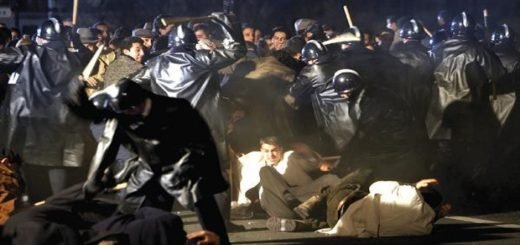Theresa May expels Russian diplomats over spy poisoning and calls for UN Security Council meeting
Britain has called for an urgent gathering of the UN Security Council to discuss the Salisbury attack, as Theresa May prepares to expel Russian diplomats from the UK.
The UK Foreign Office called the meeting, hours before the Prime Minister was to give a statement in the House of Commons setting out retaliatory action against Russia.

This will be the single biggest expulsion for over thirty years | Image: PA
Prime Minister Theresa May tells MPs in the House of Commons that the UK is to expel 23 Russian diplomats in retaliation for the nerve gas attack in Salisbury Theresa May also outlined the primary measures Britain will take against Russia in response to the poisoning of former spy Sergei Skripal after Russia failed to meet her 24-hour deadline for an explanation.
These may include the expulsion of Russian diplomats; new legislative powers against hostile state activity; and new travel controls and asset freezes.
These individuals, who May identified as “undeclared intelligence officers” will have a week to leave.
Theresa May suggested that the government would move to encourage international sanctions as well as hinting at secret measures to carry out by the security forces.
“This will be the single biggest expulsion for over thirty years and it reflects the fact that this is not the first time the Russian State has acted against our country. Through these expulsions, we will fundamentally degrade Russian intelligence capability in the UK for years to come. And if they seek to rebuild it, we will prevent them from doing so” Theresa May said.
"Under the Vienna Convention, the United Kingdom will now expel 23 Russian diplomats who have been identified as undeclared intelligence officers. Through these expulsions we will fundamentally degrade Russian intelligence capability in the UK for years to come."
— Foreign, Commonwealth & Development Office (@FCDOGovUK) March 14, 2018
May also announced that new legislative powers would be proposed in order to “harden [UK’s] defenses against all forms of hostile state activity”.
“This will include the addition of a targeted power to detain those suspected of Hostile State Activity at the UK border. This power is currently only permitted in relation to those suspected of terrorism.”
“I have asked the Home Secretary to consider whether there is a need for new counter-espionage powers to clamp down on the full spectrum of hostile activities of foreign agents in our country,” she said.
Checks on Russian assets entering or leaving the UK will be tightened.
“We will also make full use of existing powers to enhance our efforts to monitor and track the intentions of those traveling to the UK who could be engaged in activity that threatens the security of the UK and of our allies.”
“We will increase checks on private flights, customs, and freight. We will freeze Russian State assets wherever we have the evidence that they may be used to threaten the life or property of UK nationals or residents,” she said.
Theresa May indicated that the government would try to consolidate international support in responding to Russia.
“I welcome the strong expressions of support from NATO and from partners across the European Union and beyond. Later today in New York, the UN Security Council will hold open consultations where we will be pushing for a robust international response,” she said.
The UK has called for an urgent meeting of the UN Security Council to update Council members on the investigation into the nerve agent attack in Salisbury. pic.twitter.com/jFQ2HA4JV0
— Foreign, Commonwealth & Development Office (@FCDOGovUK) March 14, 2018
May confirmed the breakdown of diplomatic relations between the two countries, saying that all planned high-level bilateral contacts between the United Kingdom and Russia would be suspended.
This includes revoking an invitation to the Russian Foreign Minister and preventing British ministers and the Royal Family from attending this summer’s World Cup in Russia.
May also indicated a preparedness to use secret measures to increase security against Russia.
“We will deploy a range of tools from across the full breadth of our National Security apparatus in order to counter the threats of Hostile State Activity.”
“While I have set out some of those measures today, Members on all sides will understand that there are some that cannot be shared publicly for reasons of National Security,” she said.
These expulsions will account for around 40% of diplomats associated with the Russian embassy in London.
The embassy said the action was “totally unacceptable, unjustified and shortsighted”.
Russia is expected to retaliate by expelling British diplomats from Moscow.
Source: Independent, Verdict, USA Today, Reuters


















